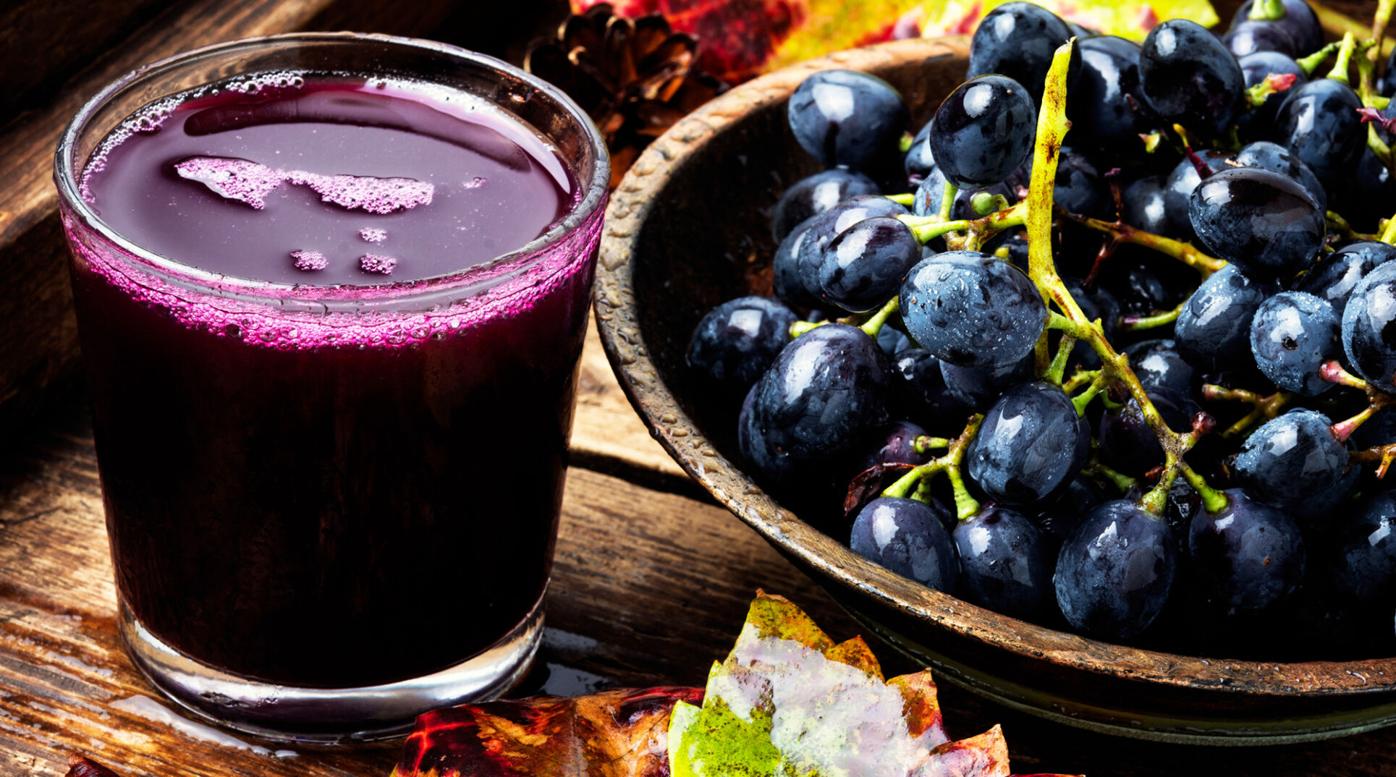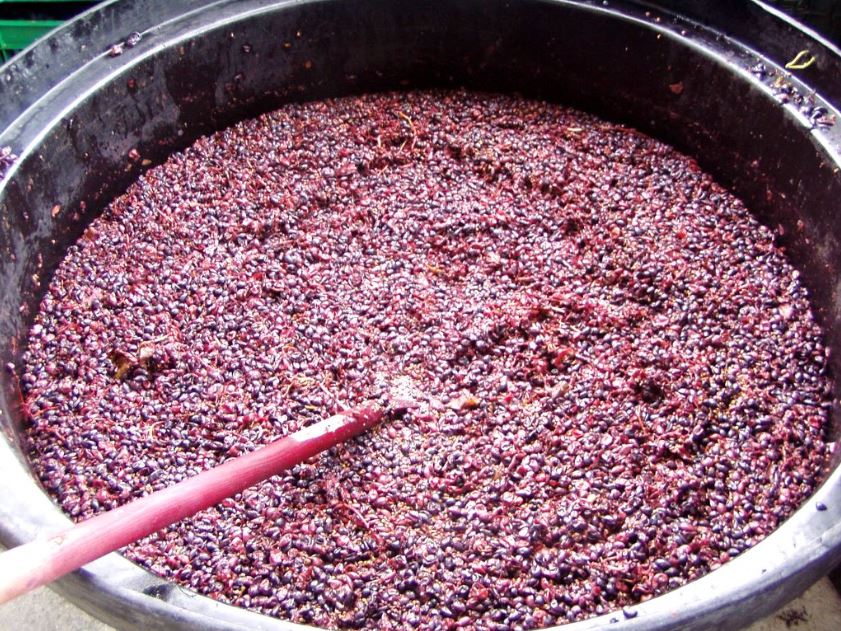Fermented Grapes: The Secret To Unlocking Flavorful Wines And Health Benefits
You’ve probably heard about fermented grapes, but do you really know what makes them so special? Fermented grapes are the backbone of one of humanity’s favorite beverages—wine. But beyond the glamour of winemaking, there’s a lot more to this process than just creating a drink. It’s about transforming simple fruit into something extraordinary, packed with flavor and even health benefits. So, let’s dive right in and explore the fascinating world of fermented grapes.
Fermented grapes aren’t just about making wine; they’re about creating an experience. From the vineyard to the bottle, the journey of grapes through fermentation is nothing short of magical. It’s a process that’s been refined over centuries, and yet, it still holds secrets waiting to be uncovered. If you’re curious about how this ancient practice continues to evolve and why it’s essential for producing some of the world’s finest wines, you’re in the right place.
Whether you’re a wine enthusiast, a health-conscious individual, or simply someone who loves learning about the science behind food and drink, this article will take you on a journey through the ins and outs of fermented grapes. We’ll cover everything from the basics of fermentation to the health benefits that come with enjoying a glass of fermented grape goodness.
Read also:Hunter Hurley The Rising Star In Contemporary Entertainment
What Are Fermented Grapes?
Let’s start with the basics. Fermented grapes are essentially grapes that have undergone the fermentation process, where natural sugars in the fruit are converted into alcohol by yeast. This magical transformation is what gives wine its distinctive taste and aroma. But fermentation isn’t just about alcohol; it’s also about developing complex flavors that can range from fruity and floral to earthy and spicy.
Here’s the cool part: fermentation isn’t just limited to wine. Fermented grapes can also be used in other products, such as vinegar, grape juice, and even certain types of spirits. The process is simple in theory but complex in practice, requiring the perfect balance of temperature, yeast strains, and time to get it just right.
The Science Behind Fermentation
Now, let’s break down the science behind fermented grapes. During fermentation, yeast consumes the natural sugars in the grapes, producing alcohol and carbon dioxide as byproducts. This process can take anywhere from a few days to several weeks, depending on the desired outcome. Different types of yeast can produce different flavors, which is why winemakers carefully select yeast strains to match the grape variety and the style of wine they’re aiming for.
- Yeast plays a crucial role in determining the final taste of the wine.
- Temperature control is essential to ensure the yeast thrives without over-fermenting the grapes.
- The longer the fermentation process, the more complex the flavors become.
Why Are Fermented Grapes Important?
Fermented grapes are more than just a key ingredient in winemaking; they’re a cultural and economic cornerstone. The global wine industry is worth billions of dollars, and fermented grapes are at the heart of it all. But their importance extends beyond economics. Fermented grapes have been part of human history for thousands of years, with evidence of winemaking dating back to 6000 BC in what is now Georgia.
Today, fermented grapes continue to play a significant role in social gatherings, celebrations, and even religious ceremonies. They bring people together and offer a sense of connection to tradition and heritage. Plus, they taste amazing, which is always a plus!
Health Benefits of Fermented Grapes
Did you know that fermented grapes can actually be good for your health? It’s true! Red wine, in particular, has been linked to numerous health benefits, thanks to the presence of antioxidants like resveratrol. These compounds can help reduce inflammation, improve heart health, and even boost brain function. Of course, moderation is key—too much alcohol can have negative effects, so it’s important to enjoy fermented grape products responsibly.
Read also:Unleashing The Power Of Dare Dogs Your Ultimate Guide
Here are some of the top health benefits associated with fermented grapes:
- Improved cardiovascular health due to antioxidants in red wine.
- Potential anti-aging effects from compounds like resveratrol.
- Support for gut health, as fermentation can introduce beneficial probiotics.
Types of Fermented Grape Products
When most people think of fermented grapes, they immediately think of wine. But as we mentioned earlier, there’s a whole world of fermented grape products out there. Let’s take a closer look at some of the most popular ones:
Wine
Wine is, of course, the most well-known product made from fermented grapes. It comes in a wide variety of styles, from crisp whites to bold reds, and everything in between. The type of grape used, the fermentation process, and the aging method all play a role in determining the final product. Whether you’re sipping on a Chardonnay or a Cabernet Sauvignon, you’re enjoying the result of centuries of winemaking expertise.
Grape Juice
Not all fermented grape products contain alcohol. Grape juice, for example, can be fermented to enhance its flavor and nutritional profile. This process can add beneficial probiotics while preserving the natural sweetness of the grapes. It’s a great option for those who want to enjoy the benefits of fermented grapes without the alcohol.
Grape Vinegar
Grape vinegar is another popular fermented grape product. It’s made by allowing grape juice to ferment further, converting the alcohol into acetic acid. The result is a tangy, flavorful vinegar that’s perfect for salad dressings, marinades, and more. Plus, it’s a great way to use up leftover grapes!
How Are Fermented Grapes Produced?
The production of fermented grapes involves several key steps, each of which requires careful attention to detail. Let’s walk through the process:
Harvesting
The first step in producing fermented grapes is harvesting. Grapes are picked at their peak ripeness to ensure the highest sugar content and best flavor. The timing of the harvest can vary depending on the grape variety and the desired style of wine.
Crushing and Pressing
Once harvested, the grapes are crushed to release their juice. For white wines, the juice is separated from the skins immediately, while for red wines, the skins are left in contact with the juice to impart color and flavor. The juice is then pressed to remove any remaining solids.
Fermentation
This is where the magic happens! The juice is transferred to fermentation tanks, where yeast is added to begin the fermentation process. The temperature is carefully controlled to ensure optimal conditions for the yeast. Over time, the natural sugars in the grapes are converted into alcohol and carbon dioxide.
Aging
After fermentation, the wine is aged to allow its flavors to develop further. This can be done in stainless steel tanks, oak barrels, or other vessels, depending on the desired outcome. Aging can last from a few months to several years, depending on the style of wine.
Popular Grape Varieties for Fermentation
Not all grapes are created equal when it comes to fermentation. Some varieties are better suited for certain types of wine or other fermented grape products. Here are a few of the most popular grape varieties used in fermentation:
- Cabernet Sauvignon: Known for its bold, full-bodied red wines.
- Chardonnay: A versatile white grape that can produce everything from crisp, unoaked wines to rich, buttery ones.
- Pinot Noir: A delicate red grape that’s notoriously difficult to grow but produces some of the world’s finest wines.
- Riesling: A fragrant white grape that’s often used to make sweet, aromatic wines.
Challenges in Fermenting Grapes
While fermenting grapes might sound simple, it’s actually a complex process that requires skill and experience. There are several challenges that winemakers and producers face:
Temperature Control
Maintaining the right temperature during fermentation is critical. If it’s too warm, the yeast can die off, leading to stuck fermentation. If it’s too cold, the fermentation process can slow down or stop altogether.
Yeast Selection
Choosing the right yeast strain is essential for achieving the desired flavor profile. Different yeasts can produce vastly different results, so winemakers must carefully select the one that best matches their goals.
Contamination
Contamination from unwanted bacteria or wild yeasts can ruin a batch of fermented grapes. Winemakers must take great care to ensure that their equipment and facilities are clean and sterile.
Tips for Enjoying Fermented Grape Products
Now that you know all about fermented grapes, here are a few tips for enjoying them:
- Pair red wines with hearty meals like steak or lamb for a perfect match.
- Serve white wines chilled to enhance their crisp, refreshing flavors.
- Experiment with different grape varieties and fermentation styles to find your favorites.
Conclusion
Fermented grapes are a fascinating and versatile ingredient that has been enjoyed by humans for thousands of years. From the rich, complex flavors of wine to the health benefits of antioxidants, there’s so much to love about this ancient process. Whether you’re a seasoned wine connoisseur or a curious beginner, there’s always something new to discover in the world of fermented grapes.
So, the next time you raise a glass of wine or drizzle some grape vinegar over your salad, take a moment to appreciate the journey those grapes have been on. And don’t forget to share this article with your friends and family so they can learn more about the magic of fermented grapes too!
Table of Contents
- What Are Fermented Grapes?
- Why Are Fermented Grapes Important?
- Types of Fermented Grape Products
- How Are Fermented Grapes Produced?
- Popular Grape Varieties for Fermentation
- Challenges in Fermenting Grapes
- Tips for Enjoying Fermented Grape Products
- Conclusion
Bagby Beer Company: The Rising Star In The Craft Beer Industry
Summit Spa Massage And Facial: The Ultimate Guide To Relaxation And Renewal
Tuba Büyüküsten 2024: The Rising Star Of Turkish Cinema

Fermented Cocktail Grapes Cultured Food Life

How To Ferment Grapes For Wine

Wine Fermentation